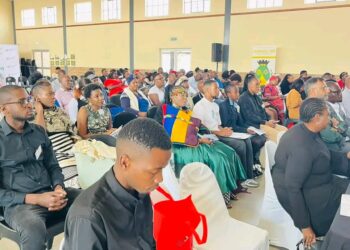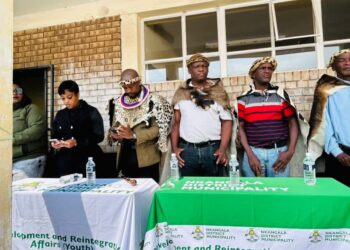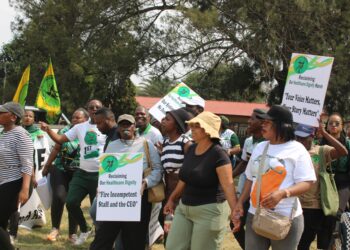eMalahleni – Mpumalanga MEC for finance, Bonakele Majuba, has sounded optimistic on eMalahleni’s revised financial turn around strategy.
“I acknowledge the municipality’s efforts and noted improvements under the current leadership,” Majuba said during a meeting held at eMalahleni chamber on 28 November 2024 to review progress of the revised financial recovery plan (FRP) and discuss its future implementation.
The infamous municipality has been in dire financial straits which prompted intervention of the provincial executive under intervention in terms of Section 139(5)(a) of the Constitution and Section 139 of the municipal finance management act (MFMA).
This intervention, designed to address financial and operational challenges, was officially introduced to the municipality on 30 January 2019.
Although the FRP implemented during that period showed some initial positive progress, subsequent assessments contained in the 2020 and 2021 reports revealed that it fell short of its intended impact.
Key challenges including outdated strategies and insufficient oversight, remained unresolved, leading to the need for a revised approach.
“I have observed positive strides in the implementation of the revised Financial Recovery Plan, and I commend executive mayor Vusi Nhlapho and his team for their dedication to restoring eMalahleni’s financial stability,” MEC Majuba said.
“This is not the time to rest, however. I encourage the executive mayor to keep up the good work and maintain momentum in addressing the remaining challenges.”
Reports from previous years highlighted significant issues, including inadequate performance management and a lack of consequence management.
The municipality struggled to recover irregular expenditures, as outlined in Section 32(2) of the MFMA, and was unable to hold responsible officials accountable.
Public participation and communication with communities were limited, further eroding confidence in the recovery process.
The revised FRP, developed in collaboration with the provincial Treasury and financial recovery services, addresses these concerns by streamlining activities to ensure greater focus and effectiveness.
The plan is structured into two key phases: a rescue phase with 102 activities targeted for completion within six to eight months and a stabilization phase with 48 activities aimed at sustainable financial recovery.
The updated plan aligns with the pillars of sustainability and prioritizes actions that stabilize the municipality’s financial standing while creating a foundation for long-term improvement.
Progress will be monitored quarterly by the provincial Treasury and the department of cooperative governance and traditional affairs (COGTA), with contributions from all relevant stakeholders.
Majuba also emphasized the importance of continued collaboration, stating, “The provincial Treasury will continue to provide support and guidance to the municipality. We are confident that, with collective effort, eMalahleni will emerge stronger and better positioned to deliver essential services to its people.”
The renewed commitment to financial recovery represents a crucial opportunity for eMalahleni to rebuild trust, accountability, and sustainability within its governance structures.
























